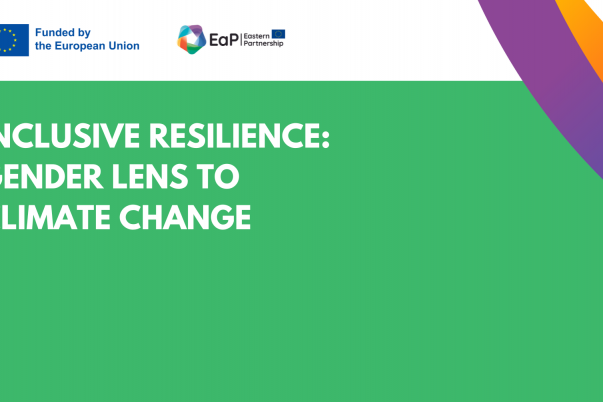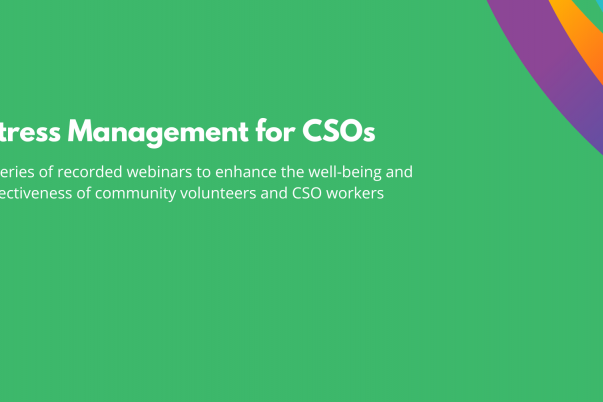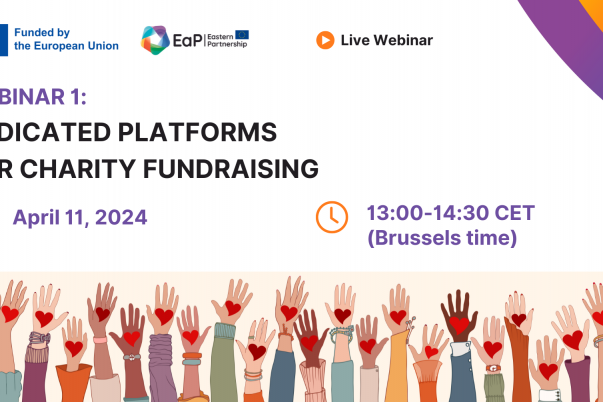We invite civil society organisations from the Eastern Partnership countries to engage with our self-taught version of the Course for Civil Society Organisations on Sectoral Accountability in the Energy Sector, developed and delivered in partnership with DiXi Group and the Kyiv School of Energy Policy.
Why do you need this course?
The sources of energy we chose and the amount of energy we use transform our planet. The energy mix we opt for as a country or the rules we have in place for our energy markets shape our futures.
If you’ve been working on energy, none of this will surprise you. You already know that civil society needs to have a say on these issues. And if you do, you should join us to find out more about the many complexities of the energy sector, how you can successfully advocate for changes and how you can keep an eye on the most important actors who have a say on these issues.
If you are among those who are concerned about our environment and climate change but might shy away from the subject of energy because it seems too technical, join us as well to get the basics you need in your work. You will better understand how the energy sector impacts the environmental work you do and how you can help shape policies for better environmental outcomes.
Who is the course for?
- Leaders, managers and other representatives of civil society organisations (CSOs), including any relevant trade unions or other sectoral associations, working on energy, climate change or environmental issues from the Eastern Partnership countries (Armenia, Azerbaijan, Belarus, Georgia, Moldova and Ukraine);
- Civil society activists from the Eastern Partnership countries involved in energy, climate change and environmental issues.
What will you achieve by taking the course?
- You will learn how to further strengthen your institutional capacity and sector expertise;
- You will better understand the energy sector, climate change and other relevant environmental issues from a national, regional, EU and international perspective;
- You will strengthen your skills for engaging in relevant policy dialogue, monitoring and advocating for positive changes;
- You will be able to better identify critical areas of intervention for positive policy changes in the sectors of energy and climate change;
- You will be able to learn from the experience of your peers from other Eastern Partnership countries.
Our course will help you reach these goals by giving you access to:
- Engaging online modules;
- Recorded webinars with trainers and peers;
- Local expertise from the EaP countries and the EU;
- Real-life examples and case studies from the energy sector;
- Networking opportunities with peers from the Eastern Partnership countries on the Forum.
What will you learn about?
The course is divided into four different compulsory modules:
- Module 0: Understand Your Role
Module 0 will provide a detailed review of the ways in which the CSOs can improve their institutional capacity, sector expertise and ability to become a viable and influential part of policy dialogue as such. - Module 1: Choose Your Instruments Wisely
Module 1 will explore the differences between consultations, advocacy and lobbying as the main instruments for championing positive changes in society, taking into account the specificities of the Eastern Partnership region. The module also contains a deep dive into the three dimensions of civic society engagement: dialogue with the government, with the private sector and with the national regulatory authorities – all including real-life examples and case studies. - Module 2: Know the Energy Sector
Module 2 offers a rich and structured overview of the main pillars of the energy sector – policy, legislation, market design and sustainability issues. Module 2 will give you the basics for moving towards a clean and sustainable energy mix centred around the rights and interests of consumers and aimed at ensuring energy security and eliminating non-transparent and manipulative practices. - Module 3: Local Context
Finally, Module 3 will provide a synthesis of all previous material within the framework of recorded webinars with practicing local experts from each of the Eastern Partnership countries. In addition to providing specific information on the national energy systems and situations, the webinars would allow participants to apply their newly acquired knowledge to identify the needs, opportunities and strategy for policy advocacy and dialogue within specific Eastern Partnership countries’ energy markets.
Who are the lecturers?
Our course brings together different experienced professionals from the region to share their knowledge and skills with you.
 |
Olena Pavlenko PhD, is President of DiXi Group, Ukraine’s leading think tank in energy governance. She has worked in the energy sector for over 17 years, dealing with issues of energy security and transparency, oil and gas market liberalisation, EU-Ukraine-Russian energy relations and hydrocarbon development. |
 |
Anton Antonenko is Vice President and Co-Founder of DiXi Group. He received his M.A. degree in Political Science from the National University of Kyiv-Mohyla Academy (Ukraine). He was responsible for managing and implementing numerous USD multimillion technical assistance projects. |
 |
Denys Nazarenko is the head of the Kyiv School of Energy Policy, an educational platform offering modern training and capacity building in energy policy, management and economics based in Kyiv, Ukraine. He has a legal background and worked in the energy sector for the last 5 years. |
 |
Roman Nitsovych is the Research Director of DiXi Group. Within the organisation, he coordinates research on the energy policy of Ukraine and the EU, the organization and conduct of advocacy campaigns. |
 |
Ana Otilia Nutu is a senior energy policy analyst and a founding member at EFOR, leading Romanian think tank and NGO in energy, and is working as a consultant for the World Bank on energy sector reforms. She also initiated energy-related projects, advocated for market liberalization and is currently EU coordinator of the Eastern Partnership Civil Society Forum, WG3 – Energy and environment and a former member of the Steering Committee of the EaP CSF. |
 |
Alexandra Sabou is a Romanian consultant with extensive experience in international cooperation, advocacy, and outreach, with a focus on the Eastern Partnership region. Currently, she works as Statutory Affairs Manager at the Eastern Partnership Civil Society Forum (EaP CSF) in Brussels. |
 |
Hennadiy Riabtsev PhD, is a specialist in policy analysis and strategic planning, Doctor of Science in Public Administration, Candidate of Technical Sciences, Professor. Works at the junction of management, economics and energy. His scientific research focuses on policy development, energy security, energy market research, hydrocarbon development, oil refining and fuel exploitation, including biological additives. He is the author of 18 books and 42 patents. |
 |
Anna Ackerman is a climate and energy policy expert and is board member at centre for environmental initiatives “Ecoaction”. She is an experienced professional in the field of energy and environment with 5+ years of experience in NGO, energy design and research sectors in Eastern and Central Europe. Her main areas of expertise include energy efficiency in buildings, renewable energy, climate change and policy advocacy. |
 |
Olena Baida is an experienced public service expert in the sphere of energy efficiency, clean energy technologies and carbon pricing. Most recently she held the position of Advisor to the Deputy Minister, Acting Director General of Energy and Resource Efficiency Directorate with the Ministry of Energy and Environmental Protection of Ukraine. She was responsible for transposition of the acquis communautaire to Ukrainian legislation. |
How can you join the course?
The course is available in English and Russian and is completely open to anyone interested to take it. Certificates are awarded automatically following the completion of the online tests integrated into the course.
To enroll:
- Step 1: Go to the English platform https://moodle.eapcivilsociety.eu/or Russian platform https://ru.moodle.eapcivilsociety.eu
- Step 2: Register at the platform.
- Step 3: Log in.
- Step 4: Select the course “Online Course for CSOs on Sectoral Accountability in Energy Sector” from the list of the available courses.
From now on you can start the course any time you like.
What else do you need to know?
Format
100% online:
- video lectures +
- recorded webinars +
- practical cases +
- forum discussions.
Language
- Online modules in both Russian and English.
- Recorded webinars are in Russian with English subtitles.
Sounds interesting? Enroll now for the English version course or the Russian language course!





Comment